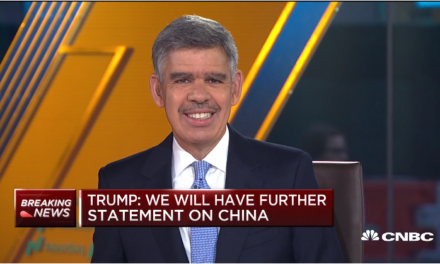DoubleLine Capital CEO Jeffrey Gundlach is worried about the current market turmoil — and he doesn’t think the massive sell-off is even close to being over.
“Things have to get worse — you don’t have a move like this end without disorder. It just never happens.”
“I am concerned,” Gundlach wrote in an email Monday to CNBC’s Scott Wapner. “Things have to get worse — you don’t have a move like this end without disorder. It just never happens.”
Treasury yields plummeted to a record low 0.318% overnight while oil prices tanked up to 30% after Russia and Saudi Arabia started a new price war. The high-yield debt market is now concerned because a lot of bonds in the market are from energy companies.
The iShares High Yield Government Corporate Bond ETF, which is one of those riskier bonds, fell 4.9% Monday. Gundlach, known as the “Bond King,” thinks the credit market is still holding up, though.
“Given that every single market is down big and the Treasury market is up big — given that context the credit market is more orderly than you would expect,” Gundlach said.
Volatility in both equity and bond markets has driven the Federal Reserve to cut its benchmark interest rate by 50 basis points during an emergency policy move on March 3. Markets are now pricing in more interest rate cuts by the Fed, but Gundlach thinks that’s the wrong move.
“These calls for more Fed action seem early. The stock market isn’t even down 20% from its all-time high,” Gundlach wrote in his email.
Gundlach may have spoken too soon, though, as Monday’s close ended one of the worst days ever for stock markets. The Dow Jones Industrial Average lost 2,013 points, or 7.8%, led by major hits to big companies like Boeing, Apple, Goldman Sachs and Caterpillar. The S&P 500 fell 7.6% and has lost just over 19% — dangerously close to bear market territory — since its record high on Feb. 19. The Nasdaq also lost 7.3%.
The market has been in correction territory for a little over a week now, but if the S&P 500 were to lose around 1% more, it would then be considered bear market territory, which is when an index drops 20% or more from a recent record high.




